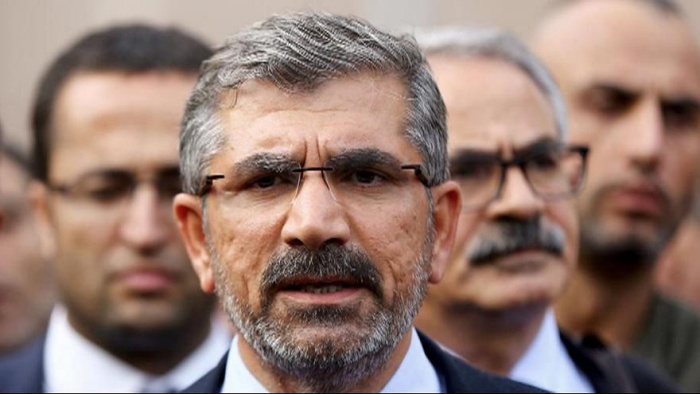The trial of three police officers charged with the fatal shooting of Tahir Elçi, a prominent Kurdish human rights lawyer who was shot in the head shortly after giving a statement at a press conference in Diyarbakır, has started nearly five years after his death.
Police officers Mesut Sevgi, Fuat Tan and Sinan Tabur are suspects in the murder of Elçi, as is Uğur Yakışır, who is claimed to be a member of the outlawed Kurdistan Workers’ Party (PKK).
Prosecutors seek two to six years in prison for the police officers on charges of “causing death by foreseeable negligence,” while Yakışır faces three aggravated life sentences and 45 years for also killing two police officers on the same day and “disrupting the unity and the integrity of the state.”
Elçi, a key figure in Turkey’s human rights movement for decades and then-president of the Diyarbakır Bar Association, was shot in the head with a single bullet on November 28, 2015, shortly after he had gathered with colleagues to issue a statement protesting armed clashes between Turkish security forces and the youth wing of the PKK.
His death came at a time when Turkey’s ruling Justice and Development Party (AKP) had ended its two-year-long peace process with the PKK, a Kurdish group designated by Ankara as a terrorist organization as it has waged a separatist insurgency against the Turkish state since 1984.
There have been many obstacles to conducting an effective investigation into Elçi’s killing that included the authorities’ failure to collect evidence at the scene and only collecting minimal evidence two days later, which resulted in a lack of potentially critical evidence.
Police also failed to locate the bullet that killed the Kurdish lawyer with the prosecutor’s decision at the outset not to interview the police officers who had shot in Elçi’s direction as possible suspects but rather as witnesses. The prosecutor investigating the death was replaced several times, causing extreme delays in the process.
Although initial reports by Turkish media outlets covering the incident accused two members of the PKK’s youth wing of Elçi’s killing, suspicion turned to the police officers who were stationed around the Kurdish lawyer and the attendees of the press conference after a study of the video footage of the event and first-hand accounts of what had transpired.
A year after Elçi’s death, the Diyarbakır Bar Association appointed Forensic Architecture, a multidisciplinary group investigating human rights violations based at Goldsmiths’ College, University of London, to carry out its own independent analysis of the video footage of the incident and all other evidence related to the investigation.
Forensic Architecture said in its study that one of the police officers at the scene most likely shot Elçi because he had a clear line of fire, while two other police officers were identified as having possibly shot him.
According to the study, the two PKK militants initially suspected of the murder were not in positions from which they could have shot Elçi and were not shooting in the timeframe in which he was killed. However, video footage provides indisputable evidence that they did fatally shoot two police officers before escaping down the street where Elçi was then shot.
Referring to the apparent procrastination and crucial mistakes in the official investigation into the Elçi murder, Diyarbakır Bar Association Chairman Cihan Aydın on Wednesday told DW Türkçe that “such lawless acts” should not be repeated during the trial.
Aydın also commented on Yakışır being named in the indictment as a suspect, saying it was an attempt to make the case more complicated in order to divert the attention from the real perpetrators and exonerate them.
“We think they [the ruling AKP] are insisting on their policy of impunity for public servants. They want this murder to remain unsolved just like they have done with thousands of others,” he added.
Milena Buyum, Amnesty International’s Turkey campaigner, said there is hope that the person who pulled the trigger will finally face justice almost five years after the bullet that killed Elçi was fired.
“He worked to help victims of human rights violations get justice, campaigning for an end to violence and respect for the rights of the Kurdish people. It is a bitter irony that his life was cut short by the very violence he was campaigning to end. Justice for Tahir Elçi would be a glimmer of hope in a country where impunity is sadly endemic,” she added.
Underlining that the family and friends of Elçi have pushed for five years for his killers to be brought to justice, Tom Porteous, deputy program director at Human Rights Watch, added, “Many in the human rights movement in Turkey and internationally will be focused on whether the conduct of the trial is designed to reveal the full circumstances of Elçi’s killing or instead to try to exonerate the police at all costs.”

